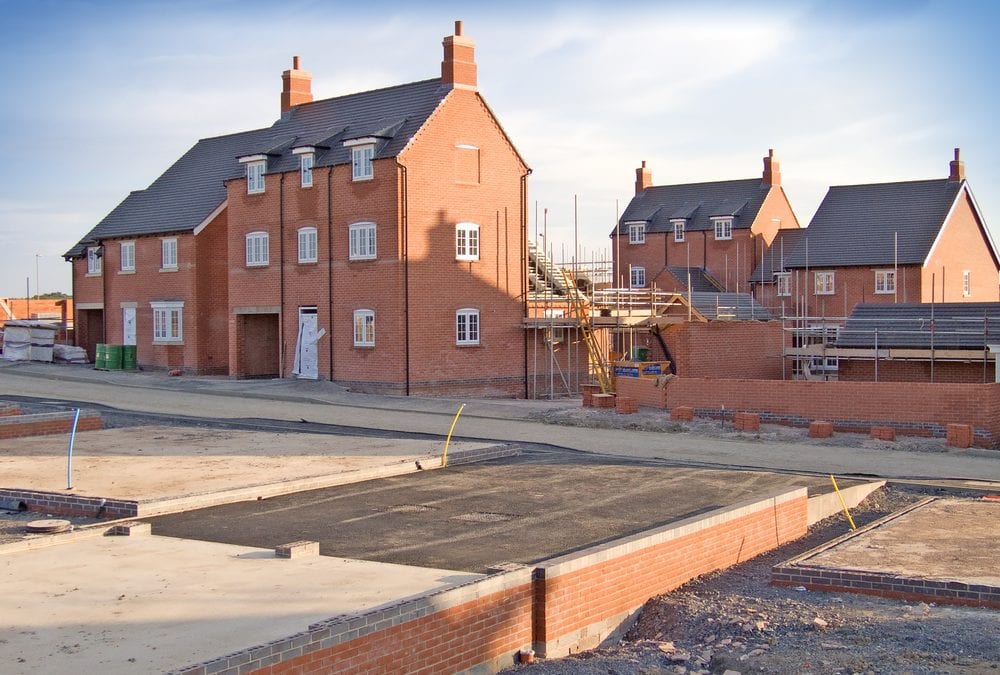
by admin | Feb 5, 2021 | Mortgage News
The year is still relatively new but the first month has proved both eventful and informative. Now, therefore, seems like a good time to review the mortgage landscape. With that in mind, here are some factors which could drive the mortgage market in 2021.
COVID19
It says a lot about the pandemic that it has easily knocked Brexit off the top spot in this list. Sadly, the end of 2020 did not lead to the end of the pandemic. On the plus side, vaccination is now starting to become a reality. This means that all being well, 2021 will be the year COVID19 is finally eradicated, or, at least, brought under control.
Of course, for various reasons, vaccination roll-outs are progressing at different rates in different places. This could end up having a major economic impact around the globe. If so, then, it probably should be assumed that the UK will be impacted to some extent.
That said, in the case of the UK, the impact could end up being neutral to positive. Right now, the UK is very much ahead of the curve on vaccinations. This means that it could, potentially, reopen its economy relatively early.
Initially, its trading options might be limited due to the ongoing impact of the pandemic in other countries. On the plus side, however, the U.S. is also pushing ahead with vaccinations. If it can also reopen its economy quickly, the UK may have the chance to develop a valuable post-Brexit trading partnership.
Brexit
Technically, Brexit is now complete. In practice, it’s clearly going to take some time for everyone to adapt to it. In the meantime, some companies are pulling out of the EU/NI market. Other companies are finding ways to adapt to the practicalities of Brexit.
Mortgage lenders are facing particular challenges because the Brexit deal was much more focused on goods than services. This means that lenders need to figure out how they’re going to manage existing customers who reside in the EU/EEA. They are also going to have to figure out how, or indeed if, they can onboard future customers from the EU/EEA.
There are already reports of financial services companies withdrawing or restricting facilities to customers based in the EU. Presumably, lenders in the EU are also withdrawing or restricting facilities to customers based in the UK for exactly the same reason. Both sets of customers can apply to mortgage lenders in their country of residence for property located abroad.
In principle, the UK could regain access to the EU (and vice versa) by coming to an equivalence agreement. In practice, this could still be a delicate situation for financial services as equivalence agreements can be revoked at any time. Lenders might, therefore, be reluctant to invest heavily in EU/EEA markets knowing that they could have the rug pulled out from underneath them (and indeed vice versa in the EU/EEA).
Remote working
According to data from people solutions consultancy New Street Consulting, there were three times as many remote jobs advertised in November 2020 as there were in November 2019. This will be in addition to the existing jobs which went remote during the pandemic and will now stay that way.
It may be too soon to declare the end of the office. It does, however, seem almost inevitable that many companies will at least scale back their office space. What’s more, the fewer trips staff are making to the office, the less important it is to live close to it. In other words, any shift to remote working has clear implications for the property market and hence the mortgage market.
Your property may be repossessed if you do not keep up repayments on your mortgage.

by admin | Jan 22, 2021 | Mortgage News
Despite the general lack of seasonal festivities, the Christmas period can still be financially challenging. That being so, you may be thinking about applying for a mortgage holiday in the new year. If so, here’s a quick guide to what you need to know.
Relief is still available for people impacted by COVID19
At present, people impacted by COVID19 have until 31st March 2021 to apply for a self-certified mortgage holiday. What this basically means is that you will automatically be granted a payment holiday for up to three months without the need to go through a formal approval process.
You can then extend this up to a total of 6 months. All COVID19-related payment holidays must, however, be finished by 31st July 2021. This means that if you think you might need or want to take the full 6 months, you’ll need to have everything signed off by the end of January.
The negatives of mortgage holidays
There are two potential negatives about taking a mortgage holiday. Firstly, the holiday gives you a break from the payments. It does not, however, give you a break from the interest. How much of a negative that will be will depend partly on your mortgage deal and partly on the size of your balance.
If you have a large balance on your mortgage, then you might want to consider organizing a partial payment holiday. This would give you some relief from the payments while limiting the amount of interest which accrued during the holiday. Alternatively, you could ask your lender if you could make payments voluntarily if your circumstances allow.
The second negative is that a payment holiday can impact your credit record. Technically, a COVID19-related holiday is not reported on your payment record. The problem is that in the real world, it’s pretty easy for lenders to figure out that you’ve had a payment holiday. If you’re making regular payments, your balance is going down accordingly. If you’re on a payment holiday, it isn’t.
Again, the real-world impact of this is likely to depend on your circumstances. If you’re happy to stay with the same lender for the immediate future, then you may be prepared to take the hit. If, however, you’re looking to change lenders, then you may be better overall to make the payments, even if it’s a struggle.
After the mortgage holiday ends
After the mortgage holiday ends you either resume payments as normal or go onto tailored support measures. These will be set up in partnership with your lender. Be aware that, like payment holidays, these support measures may come at a price. For example, if your lender extends your mortgage term, you may pay less each month but end up paying more overall.
Unlike COVID19 payment holidays, tailored support measures will be reported on your credit record. Again, the impact they have will depend on your circumstances. For example, if you extend your mortgage term, you will be able to maintain a track record of regular payments. If, however, you arrange another deferral, you will be sending a very clear message to a lender.
If you switch to an interest-only mortgage, then you’ll need to think very seriously about how you’ll repay the capital. Unless you have some other repayment vehicle in place, then you will need to give up ownership of your home. This may not mean that you have to leave it. You might, for example, be able to use equity release to pay off the balance.
Selling your home
If it’s a continual struggle to pay your mortgage, then your best option may be to sell your home. This can be a hard decision to take. In fact, you may want to get professional advice before you take it. Keep in mind, however, that there are many reasons why selling your home on your own terms is better than having it repossessed.
Your property may be repossessed if you do not keep up repayments on your mortgage.

by admin | Jan 15, 2021 | Mortgage News
COVID19 is battering the economy. Brexit has happened. There is no telling what 2021 will bring and yet the housing market is forging ahead. According to the Halifax House Price Index average house prices have increased 7.6% in the year to November and 1.2% between October and November. This begs the question of why house prices are rising.
The Stamp Duty holiday
Possibly the most obvious reason why house prices are rising is the Stamp Duty holiday. Quite simply, by making most buyers pay less to HMRC, the Treasury left them with more budget available for the offers themselves.
If this is the only factor driving the housing market, then its effect should begin to wear off very soon. The offer is due to come to an end on 1st April 2021. That’s basically for three months. What’s more, the Stamp Duty holiday only applies to purchases completed before that date. In other words, the conveyancing has to be finished.
The great escape to the country
The great escape to the country may be a bit of an overstatement. There is, however, clear evidence that home buyers want more space. On a like-for-like basis, bigger properties tend to cost more than smaller ones, hence average house prices could rise, possibly substantially, at least over the short term.
Over the long term, however, there are a lot of variables to consider. One of the most obvious is the question of what happens with smaller properties? If their owners hold on to them, then the strong house price rises could continue, fuelled by the sale of the larger properties.
If, however, their owners lower the prices to get rid of them to someone, then prices could level or even fall. A lot would depend on how many smaller properties were sold and at how much of a discount to what you would expect given pre-COVID19 housing trends.
The remote working issue
The question of whether or not the appetite for more space continues may depend largely on the question of whether or not remote working becomes an established part of the (post-COVID19/post-Brexit) “new normal”.
At present, this is literally anybody’s guess. It is, however, worth noting that COVID19 has forced companies to support remote working. This demonstrates that it can work at least to some extent. The question is, therefore, really whether or not companies see any benefit to it once the current pandemic is consigned to the history books.
The answer to that question is likely to be “it depends on the company”. Some companies may be only too eager to get their staff back into the office. Others, however, may be looking at the cost-savings of reducing their office space and the opportunities offered by being able to extend their recruitment process beyond their local area.
Seizing the moment
Another possible reason why buyers are so active now is that they don’t know for sure what’s going to happen in the future. Since March 2020, the UK has essentially been in various stages of lockdown in various parts of the country. Buyers (and sellers) might have been motivated by the thought that they might not get another chance to move any time soon.
If this is the case then, again, it’s debatable how long this stimulus will last. Up until recently, talk of a vaccine has been largely just that talk. Now, it seems to be making its way into reality. Depending on how this progresses, it may calm the nerves of buyers (and sellers), who fear being trapped in an unsuitable home for another lockdown (or more than one).
Your property may be repossessed if you do not keep up repayments on your mortgage.

by admin | Dec 11, 2020 | Mortgage News
By this point, everyone probably knows to make sure a house looks good before a potential buyer comes to view it. For most rooms, it’s enough to make sure that surfaces are clean and everything is tidy. Some rooms, however, need more attention. The bathroom is obviously one. It may, however, be less obvious that your kitchen is another.
The power of smell
Contrary to what is often suggested, it’s actually a bad idea to try to entice home viewers with scent. The problem with this approach is that scents are very personal. This means that even popular scents, like citrus, will be disliked by some people. It would be very unfortunate if a potential buyer was one of those people.
Instead, you should be aiming for a neutral smell, a lack of odour. This can be harder to achieve than it sounds, especially in a kitchen. A kitchen is, of course, a place where you prepare food and some foods smell. Hopefully, it’s obvious that you should be emptying your bins regularly (and cleaning them too). You also need to deal with your appliances.
Cookware store Oliver’s Kitchen ran a survey on the UK’s kitchen cleaning habits and discovered that 48% of people don’t clean their fridge regularly, 69% of people don’t clean their oven regularly and 82% of people don’t clean their microwave regularly. If you’re trying to sell your house, you need to clean all of these appliances properly, along with your hob and freezer.
Don’t make your buyers sick
With all the focus on COVID19, it can be worrying easy to forget that there are many other health and safety issues to consider. The kitchen is a potential hotspot for all kinds of bacteria. Anything a buyer could potentially touch (or brush past) could transfer those bacteria to them. If this makes them ill, it could put them off buying your house.
The key point to note is that cleaning only makes a real difference if your cleaning tools are clean themselves. This may sound like stating the obvious, but the results of the Oliver’s Kitchen survey indicate that the obvious is being widely ignored. For example, 64% of respondents admitted that they didn’t wash/change their kitchen dishcloth/sponge regularly.
Unless you use hygienically clean tools the most you will do is move bacteria from one place to another. This is basically asking for trouble at any time. For completeness, hand-washing is also important, especially in the age of COVID19. If you’ve never learned about proper hand-washing technique, now is a great time to do so.
Keep out uninvited visitors
One of the great advantages of selling a house in winter is that you’re much less likely to need to deal with insects. This includes ants as well as the flying sort. Other kinds of uninvited visitors, however, can stick around over the winter months. In fact, they may find your kitchen a very appealing place to spend at least some of their time.
Even if they’re not around when your visitors appear, they can leave little traces behind. These aren’t exactly a positive sign for house viewers. What’s more, if you know you have a pest issue, then you may have to declare it or risk potential legal issues further down the line. The good news is that even in winter, most pests will stay away unless you encourage them.
The easiest way to encourage unwanted visitors is to make food available to them. This is why kitchens are such likely targets. It, therefore, follows that the easiest way to deal with this is to make sure that all food is always kept stored away unless it is actually being prepped.
If you need mortgage advice please contact us.

by admin | Dec 6, 2020 | Mortgage News
Since 2001, the UK has had no fewer than 16 housing ministers. Seven held the post under a Labour government. Nine have held the post under a Conservative government. None have succeeded in resolving the many issues with the UK’s housing market. Now it’s Boris Johnson’s turn to try.
A conference to remember
Even though the Conservative party conference is an annual event, the 2020 conference will probably go down in history as an event to remember. It was the first time the conference had been held virtually. The reason it was held virtually was due to a global pandemic and, of course, it was the last Conservative party conference before Brexit.
It was therefore entirely understandable that the Prime Minister would use the occasion to try to spread at least some cheer and general positivity. One of the ways he did this was by setting out a plan to convert the current under 40s from “Generation Rent” to “Generation Buy”.
The Prime Minister’s plan is thin on detail
At present, there is virtually no specific information available about the PM’s intentions. All he has said is that he intends to make it possible for first-time buyers to buy homes with only a 5% deposit. This statement in itself is rather odd because it is already possible for them to do so via the existing Help to Buy Equity Loan scheme.
As a quick reminder, this was due to have been closed at the end of March 2021. It has, however, been officially extended to the end of March 2023. It will, however, only be available to first-time buyers. There will also be some adjustments to the level of help available. The fundamental mechanics of the scheme will, however, remain the same.
To recap, under the existing Help to Buy Equity Loan scheme, buyers put down a 5% deposit. The government guarantees 20% of the remainder so the buyer only needs a mortgage for the remaining 75%. The government loan is interest-free for five years. After this time, the buyer can either buy them out or pay interest on the loan.
Help to Buy Equity Loan Part 2?
If Boris Johnson simply meant to extend the existing Help to Buy Equity Loan scheme without any changes, then presumably he would just have said so. This suggests that, while the basis of the idea might be the existing Help to Buy Equity Loan scheme, there are going to be some changes to it.
The risks of extending the Help to Buy Equity Loan scheme
Extending the Help to Buy Equity Loan scheme to include completed property might placate those who object to homebuilders profiting from the taxpayer. It would, however, create additional risks, which could rebound on the taxpayer.
The first risk is the risk of creating a housing bubble, or, at the very least, creating excessive house-price inflation. If it does, then there are massive risks to everyone, including, possibly especially, the next generation of first-time buyers.
The second risk is the risk of default. Quite bluntly, the Help to Buy Equity Loan scheme does not make housing more affordable by making it less expensive. It makes it more affordable by restructuring the financing. It also puts the taxpayer on the hook for much of the risk of default on that financing.
Your property may be repossessed if you do not keep up repayments on your mortgage.






Recent Comments